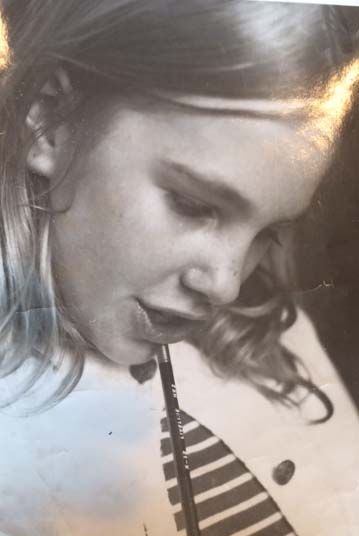As American society entered the second millennium we heralded more women role models in sports, politics and entertainment. The US Women’s Soccer team who beat China in the largest attended professional sporting event held at the Rose Bowl; Hillary Clinton’s ascent of the political ladder; Governor Ann Richards reign over Texas; Governor Judy Martz of Montana who increased government spending on education to record amounts; Oprah Winfrey who built a media empire. As these women provided strong role models for younger women so too more men, like my daughter’s father, invested their souls in the success of their daughter’s and the women around them.
Our family adhered to what for us was a basic premise that respect of diversity of thought and action inherent to individual differences, whether they be race, creed, religion, ethnicity, sexual preference and gender, resulted in superior outcomes in decision making whether in the private realm of the home or the public dominions of sports and business. By practicing these lofty principles we could make the world a better place.
Nevertheless I questioned the practicality of raising my daughters to expect to be treated on par with the boys, schooling them in the rules of the grown up road including the similarities and differences of how men and women navigate that road. I knew that their expectations for equal treatment for work and play might not always be met simply because of their gender. Even though it had been twenty five plus years since “girls rules,” misguidedly designed to prevent girls from running the full court for fear it would endanger their young uteri, had been replaced by “boys rules,” the debate continued whether equal access to sports and education was best for society. Cases of boys activities suspended in order to make room for the girls were cited as proof of the maleficent result of providing access to girls and women into the traditionally male state of affairs. The debate about the virtues of single sex versus mixed group teams and classrooms continues even as we address the implications of children identifying with the gender other than the one with which they were born. My younger daughter’s friend Sarah was becoming Michael, in person and in name, by the time he graduated from high school.

In 2017 American society still largely prioritizes white male privilege. Teaching girls to buck traditional norms by standing out and taking charge, rather than play solely supportive roles; and boys to nurture relationships outside a competitive hierarchy, requires a second and more subtle level of acumen, that of resilience to taunts of one’s authenticity.
While it’s commonly proffered that it’s healthy for men and women to engage their respective “feminine and masculine halves,” public expression of that dualism is frequently met with confusion and resistance. We don’t realize the extent of the consternation around gender customs until we find ourselves bewildered by conflict, say, by simply asking a question. Women generally perceive a question as a request for information, while men may identify it as a challenge to their hard earned status as “expert.” When women speak directly, shedding qualifying words like “don’t you?” from their assertions and purging modifiers such as “maybe and perhaps”-phantasmal reinforcements of their point of view from their inquiries, they may find men (and other women) don’t know how to deal with their well hewn opinions, let alone that they actually formed them. Men, by collaborating and seeking consensus to both preserve community and arrive at the best outcome, risk being perceived as weak, compromising their place in the rule of the
land. By standing out women risk estranging themselves from the cultural web of feminine relationships into which they were born; and by fostering the validity of feelings, men may inadvertently extricate themselves from the male social hierarchy. The potential for conflict in simply being oneself in this complex landscape is of huge consequence. Learning to recognize language’s invisible nuances and simply make distinctions around traditionally defined masculine and feminine defined behaviors—like realizing that male razzing signals a complimentary invitation to hang with the group—without judgement are potent skills required to hold one’s ground.
Of course, I qualify all of this with the adage “there are more differences within the sexes than between them.” Family, culture, ethnicity, religion, race, gender preference, all factor in to how personalities emerge in the world. Ultimately evolving self-awareness of what makes us unique and crafting a realistic perspective of the world which sustains us is paramount to self-determination, masculine and feminine.

My daughters have flown the nest now, the elder securing a corporate job right out of college, and the younger a summer internship in her chosen scientific course of study. Both are sobered by the current paranoid political climate which quickly attempts to defile a person based on, what more truly are, rich individual attributes, in order to distract a conversation from the real issues at hand.
I am more circumspect. I vacillate between feeling frustrated that after many decades of progress in securing civil liberties and attending to manmade problems challenging the earth, many in our our country arrogantly cater to false gods of wealth and status; and the recognition that before us is an opportunity to reclaim the privilege of self-determination we have taken for granted. For me the task at hand is to reclaim the reality we are a part of something greater than ourselves, and take on the responsibility to protect this greatness for ourselves and the generations to come.
Strolling through city parks watching the interactions of young and old, families and friends lifts up my heart. Occasionally I’ll see a girl snatch the basketball from a court full of boys and take a shot, or a young woman receive a football and run a touchdown through a mess of guys, with friends of both genders spectating from the side line. It gives me the courage I need to continue to stand out, or as Cheryl Sandberg says “lean in” to my daughters, my work, my love life.
While none of us realized it at the time, the lessons we taught each other as children, the boys and me, are timeless. Thanks, guys, for setting me up to pass forward our garnered wisdom on to my daughters, to know what it is to be happy, and to pursue a life well lived. To this day, you remain my first pick.


No responses yet